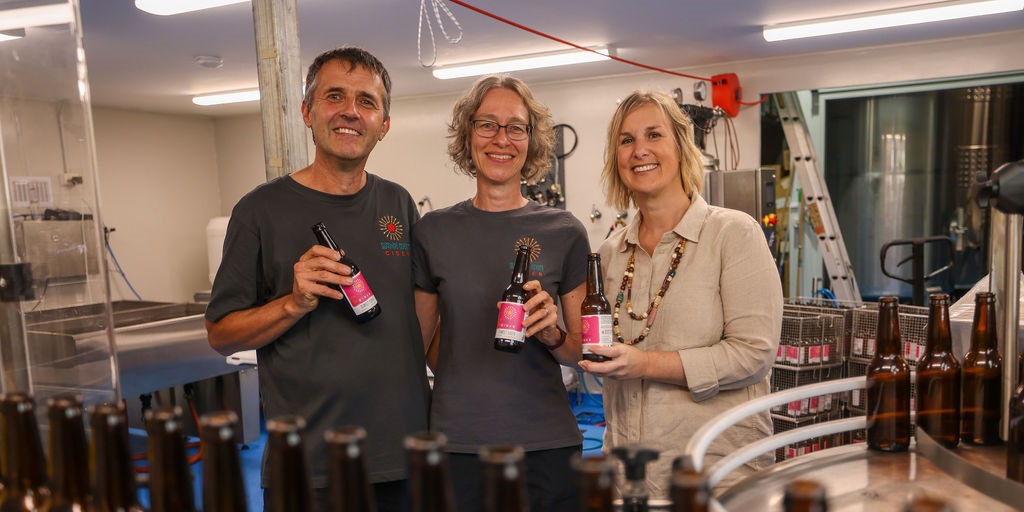
Sunshine Coast beverage precinct attracts $33m

Sunshine Coast Cider founders Martin and Regine with Food & Agribusiness Network CEO, Emma Greenhatch
A new food and beverage precinct on the Sunshine Coast which could benefit the region’s brewers has attracted $33.4 million from the Federal Government.
The precinct is “expected to gain national and international recognition as a blueprint for collaborative manufacturing” thanks to the funding, which follows an $8.7 million grant secured by the Food and Agribusiness Network (FAN) and the Queensland Drinks Accelerator (QDA) for the project in 2021.
The Turbine Collaborative Food & Beverage Manufacturing Precinct is intended to enable SME food and beverage manufacturers to “innovate and scale-up, up and will present exciting opportunities for producers and the entire value chain”, according to a statement released last week.
Simon Michelangeli, founder of the QDA and co-founder of the Glass House Brewery, said the precinct was intended to help Queensland beverage producers with export opportunities and new product development.
While the precinct will cover a wide range of food and beverage manufacturing, Michelangeli said that it would benefit brewers with greater opportunities for contract production of beer.
“[FAN] have been looking for an opportunity to establish a collaborative food and beverage precinct, and at the same time, Glass House was increasingly doing contract production,” Michelangeli told Brews News last year.
“I realised that there was an unmet need in terms of contract production for beer and the broader drinks category in Queensland.
“We were looking for an opportunity to grow our business into that space, and joined that initiative started by FAN, and then worked with a number of other partners to develop a critical mass of capability that we then presented to the Federal Government’s MMI.”
“The main part of this announcement is that in contract manufacturing capacity, whether that be new-to-market producers or existing brewers that need additional capacity, giving them the ability to expand and look at national distribution and export in particular.”
Another focus of the beverage precinct will be in helping producers develop new products and tap into emerging trends, one of which is no and low alcohol.
The no-alcohol space is beyond many smaller brewers who could not afford the equipment required to de-alcoholise or pasteurise zero-alcohol beer, although this has been changing in recent years.
“We’re investing in dealcoholisation, and the ability to package non-alc beer which is obviously a challenge, as it essentially requires pasteurisation which is a limiting factor [for smaller brewers] providing some of the most advanced technology around,” Michelangeli said.
“The problem we’re solving here is providing the next step into the dealcoholisation market.”
CEO of the Food and Agribusiness Network, Emma Greenhatch said that small businesses can face massive hurdles to growth and innovation, something the brewing industry knows about all too well.
“With such high barriers to growth in our industry, collaboration is key to ensure we have a resilient and competitive food and beverage manufacturing sector into the future,” she said.
“Uniquely, the Turbine Precinct will house end-to-end infrastructure and support, that will allow start-ups and SMEs to take a great idea through to commercialisation and export – all in the one location.
FAN suggested that 687 manufacturing roles and retail trade roles will be created as a resi;t of the precinct, and boost the revenue of the Turbine’s Project Partners by $300 million.
The organisers predicted that around half of all products produced within the Precinct will likely be exported.
The Turbine Precinct is due to commence operations in late 2023.



